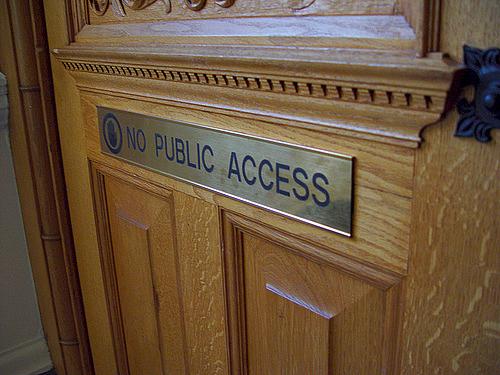Off the Record: When reeducation for physicians isn’t good enough

Five injured patients.
Multiple operations on his girlfriend that should have been handled by an independent physician.
A woman with aggressive cancer who wasn’t referred to an oncologist.
Dr. John Perry’s problems were stacking up when Washington state’s Medical Quality Assurance Commission sent him to see a psychiatrist, according to commission records. This is a typical move for a state medical board trying to reeducate a troubled physician. Take an ethics class, they say. Improve your record keeping. Talk to a shrink.
The psychiatrist filed a report with the commission in 2013.
Shortly thereafter, in February 2013, the commission received a “complaint that if true, indicated the Respondent may have been deceptive or untruthful during his psychiatric evaluation.” The commission wrote:
The complaint alleged that significant events had occurred in the Respondent’s life and practice which were of the nature that they would have been addressed in Dr. Oreskovich’s report, but which had not been mentioned by him. The allegations involved boundary and standard of care issues wherein the Respondent placed his desires over the medical needs of a vulnerable patient.
The commission also found out about a rather large malpractice settlement that Perry had neglected to mention. The commission wrote:
The following week, on February 19, 2013, the Commission received a report from Respondent’s medical malpractice insurer concerning a $375,000 settlement on January 25, 2013 of a medical malpractice lawsuit against Respondent. Neither the pending litigation nor its impending settlement had been mentioned in the psychiatric evaluation report.
So the psychiatrist interviewed Perry again and revised his opinion.
On February 21, 2013, Dr. Oreskovich conducted a 45-minute follow-up interview by phone with Respondent in which he asked Respondent about the allegations, the malpractice litigation that had been pending at the time of the evaluation, and the significant malpractice settlement which was paid shortly after Respondent had participated in his psychiatric evaluation. As a result of this interview, on March 26, 2013, Dr. Oreskovich submitted an addendum to his initial evaluation report to the Commission in which he concludes that Respondent is unable to practice with reasonable skill and safety, and is impaired due to an untreated severe narcissistic personality disorder.
After several years of giving Perry another chance, the commission took these new allegations seriously and suspended Perry’s license temporarily. It wrote:
The Commission believes that the Respondent poses a risk of immediate danger to his patients. Because the Respondent practices obstetrics and gynecology, still has clinical privileges at one hospital, and has a practice of which a large percent is vulnerable patients insured by Medicaid, the Commission believes that suspension of the Respondent’s license is the only way the public can be protected adequately.
Then the commission reached a new agreement with Perry in January 2014. As he had in the earlier cases, Perry acknowledged many of the allegations against him, but this time there was no reeducation plan. This time the commission suspended Perry’s license indefinitely.
What were the “significant events” that triggered this chain of events? We may never know. The commission won’t say.
And if the legislation that has been proposed in both the state House and Senate ultimately goes through, there will be a lot more that goes unsaid.
One of the provisions in the bill being proposed in the state House would create a “quality improvement program” for physicians that would allow the board to intervene “in cases of questionable behavior or care, or in cases where there is reasonable cause to suspect there is a quality of care or behavior issue but not unprofessional conduct.” Then, the commission would require the physician to undergo some training, all the while checking in on the physician’s improvement.
All sounds pretty reasonable, right? But should these actions be taken outside of public view? The way this quality improvement program is currently envisioned, they would be. The bill says:
The quality improvement program consists of nondisciplinary and nonreportable tools for use by the commission at its discretion to resolve issues relating to medical practice.
The new rules would give the commission the ability to make deals with physicians like Perry to send them down a non-disciplinary pathway that would be hidden from public view. What is outlined above looks a lot like the reeducation program the commission thought would fix Perry’s problems but that ultimately could not save his license. Under the existing rules, his case history is public. Under these new rules, cases like this would disappear from view.
Image by jmv via Flickr
Related Posts:
Off the Record: Legislators try to put doctor discipline behind the curtain
Off the Record: When doctor-patient becomes doctor-lover
Off the Record: Doctors need to know when to ask for help

